|
I’m old enough to remember when Pierre Trudeau was prime minister — in fact, it seems he was PM for my entire childhood and adolescence. When I became a journalist and was very pregnant in 1990, I found myself scrumming a man who seemed larger than life to me for most of my formative years — and I appreciated him briefly taking my hand to help me down the stairs during that scrum. A decade later, I covered his funeral in Montréal in 2000, hanging over a barricade to snoop while Fidel Castro was chatting with Margaret Trudeau just a few feet away.
There’s no question Pierre Trudeau remains an almost mythical and at times polarizing figure to many Canadians. But today in The Conversation Canada, two scholars from the University of Regina point out just how badly he failed on Indigenous rights —and how these failures tarnish his legacy.
Raymond B. Blake and John Donaldson Whyte write that like too many Canadians, Trudeau couldn’t grasp the enormity of the inhumane treatment of Indigenous Peoples in Canada, and the extent to which it was still in force, due to residential schools, Indian Agents and brutal social conditions. They remind us how he and Jean Chrétien, his minister of Indian Affairs and Northern Development at the time and later a prime minister himself, proposed in a white paper in 1969 that the special legal relationship between First Nations and the government of Canada
be severed and all Indigenous Peoples fully integrated into Canadian life. Trudeau was also opposed to Indigenous self-government, contributing to our ongoing national shame.
Blake and Whyte conclude: “It’s left to Canadians today – and to his son, Justin — to do better.”
Also today:
All the best,
|
Lee-Anne Goodman
Politics, Business + Economics Editor
|

|
|
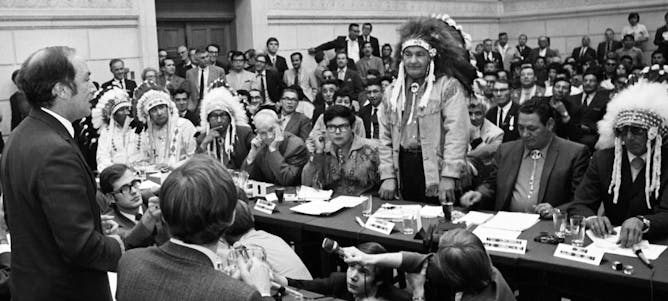
Prime Minister Pierre Trudeau speaks during a dramatic meeting with the entire federal cabinet and a delegation of about 200 First Nations leaders on Parliament Hill in Ottawa in 1970.
THE CANADIAN PRESS/R. Mac
Raymond B. Blake, University of Regina; John Donaldson Whyte, University of Regina
How did a national leader whose animating political spirit was protecting human rights come to adopt a passive acceptance of Canada's worst face of colonialism?
|

A group of policemen in Marseille, France, pass in front of a bus shelter featuring a poster from the television series ‘Paris Police 1900’.
(Shutterstock)
Tiara Sukhan, Western University
The classic cop show is now a problematic genre, but if it can change, then perhaps real world policing can too.
|
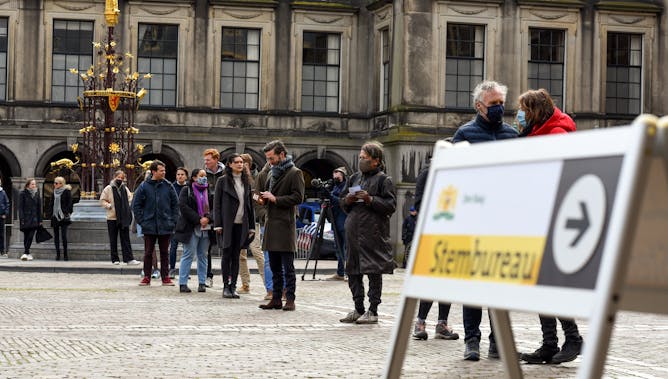
People stand in line waiting to vote in the Hague in the Netherlands.
(Shutterstock)
Willem Maas, York University, Canada
The March elections in the Netherlands, and the fact that a government still hasn't been formed, illustrate both the benefits and problems with proportional representation.
|
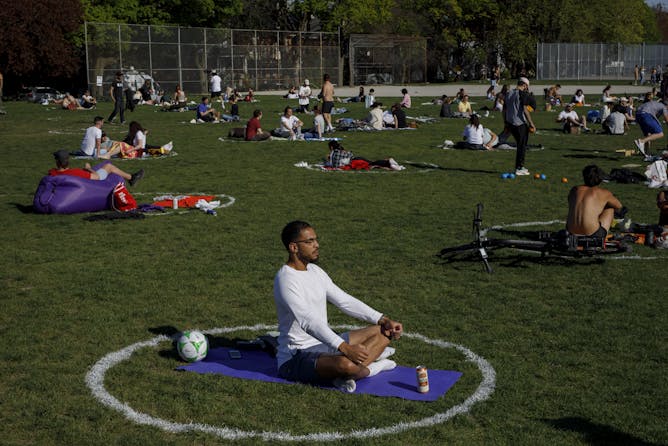
Green spaces are inequitably distributed across cities: The quality and quantity are lower in racialized neighbourhoods.
THE CANADIAN PRESS/Cole Burston
Nadha Hassen, York University, Canada
Green spaces can be part of the plan to 'build back better' after COVID-19. But city officials and policy-makers must address systemic racism for urban green spaces to benefit public health.
|
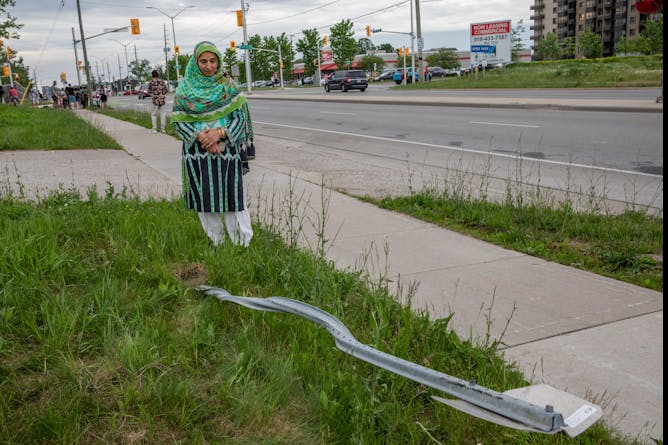
Mourners visit the site where a Muslim family of five was deliberately run over by a driver on June 6, 2021.
(THE CANADIAN PRESS/Brett Gundlock)
Jack L. Rozdilsky, York University, Canada
Whether the perpetrator in the attack on a Muslim family that left four dead is charged with terrorism remains to be seen. But laying terrorism charges is legally complex.
|
La Conversation Canada
|
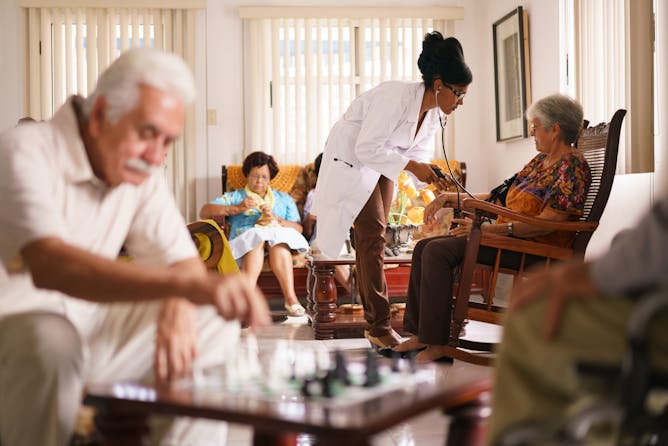
Réduire la sédentarité dans les CHSLD et résidences pour aînés pourrait améliorer la qualité de vie des personnes âgées.
Shutterstock
Kirsten Dillon, Western University
Afin d’améliorer les soins et la qualité de vie dans les résidences de soins pour personnes âgées, il faudrait réduire les comportements sédentaires.
|

Les réseaux sociaux, les jeux vidéo et les communautés sur Internet font tous face au même problème: la multiplication des commentaires toxiques par une poignée d’utilisateurs malveillants.
(Shutterstock)
Richard Khoury, Université Laval
La propagation des messages toxiques est un grave problème sur Internet, qui a d’abord été imaginé pour s’exprimer librement, mais qui a ouvert la porte aux commentaires agressifs et violents.
|
Arts
|
-
Victor Araneda Jure, Monash University
When we read comics, we 'hear' sound on the page. Creators are experts at this cross-sensory form of storytelling - indeed one database lists over 2500 comic book sounds.
|
|
Podcasts
|
-
Pooyan Tamimi Arab, Utrecht University; Ammar Maleki, Tilburg University
Ahead of June 18 presidential elections, a new survey found that only around a quarter of Iranians plan to vote.
|
|
Health
|
-
Lindsay Bottoms, University of Hertfordshire
Hiking has seen a sharp increase in popularity since the start of the pandemic.
|
|
Science + Technology
|
-
Steve Taylor, Leeds Beckett University
A different interpretation of time might explain why people see their whole lives replayed to them in a split second.
|
|
| |
| |
| |
| |

|
| |
| |
| |
| |
| |
| |
| |
| |
|
|